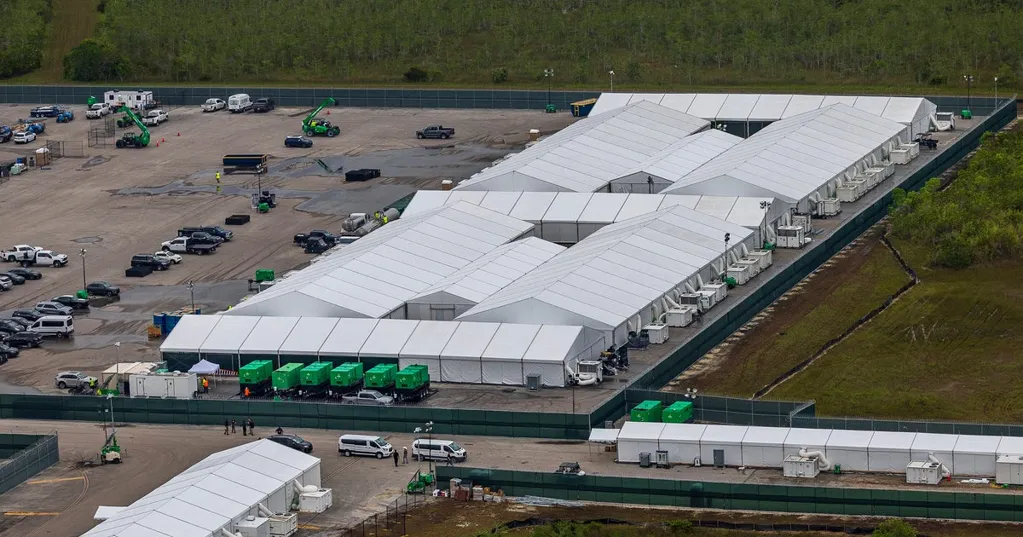Immigration lawyers say it's been nearly impossible to communicate with clients who are at the remote facility.
Immigration attorneys have been barred from visiting clients at a remote Everglades detention facility and have limited means of contacting them, according to a new lawsuit from the American Civil Liberties Union and multiple immigration advocacy organizations.
"The government has banned in-person legal visitation, any confidential phone or video communication, and confidential exchange of written documents," the ACLU noted in a Wednesday release announcing the suit, which it filed against the Trump administration.
These policies violate immigrants' right to due process and right to communicate with legal counsel, the organization says. It and a number of legal groups are suing so detainees can be guaranteed a viable means of reaching their attorneys and contesting their detentions.
The suit comes amid reports of abysmal living conditions at the Everglades facility, including a lack of water for bathing, inedible food and rampant mosquito infestations, as well as growing concerns about how few legal protections detainees have.
As noted in the suit, immigration attorneys attempting to visit their clients onsite have waited for hours only to be turned away and given either a faulty email address or a visitation request form that requires them to submit documents for facility approval.
"Attorneys have taken the long road trip to the facility to try and meet with their clients in person -- a universal practice at every other immigration detention facility in the United States -- only to be greeted at an armed checkpoint near the facility and barred from entry," the lawsuit reads.
Beyond the visitation barriers that attorneys have run into, many have also struggled to contact their clients via phone or email, the lawsuit said. Emails they've sent have bounced back, and calls have gotten disconnected after long hold periods, the lawsuit said.
"Attorneys have also attempted to locate a facility phone number, email address, or any instruction to arrange contact with clients held at the facility, with little to show for their Efforts," the suit notes.
Attorneys said they are left with little ability to advocate for their clients.
"The only way that detained people can communicate with the outside world is via infrequent access to collect pay phone calls that are monitored and recorded, and last approximately five minutes," per the lawsuit.
The Florida Department of Emergency Management, which oversees the operations of the detention facility, previously told The Miami Herald that detainees have "regular access to phone and video calls with their attorneys and family members upon request."
Neither an FDEM spokesperson nor a Department of Homeland Security spokesperson responded immediately to a HuffPost request for comment.
Reliable contact with legal counsel is crucial for immigrants seeking to fight deportations, experts say.
"Lack of access to counsel is well documented to lead to lower rates of release and ultimately lower rates of relief being granted," University of San Francisco Law Professor Lindsay Harris previously told HuffPost.
